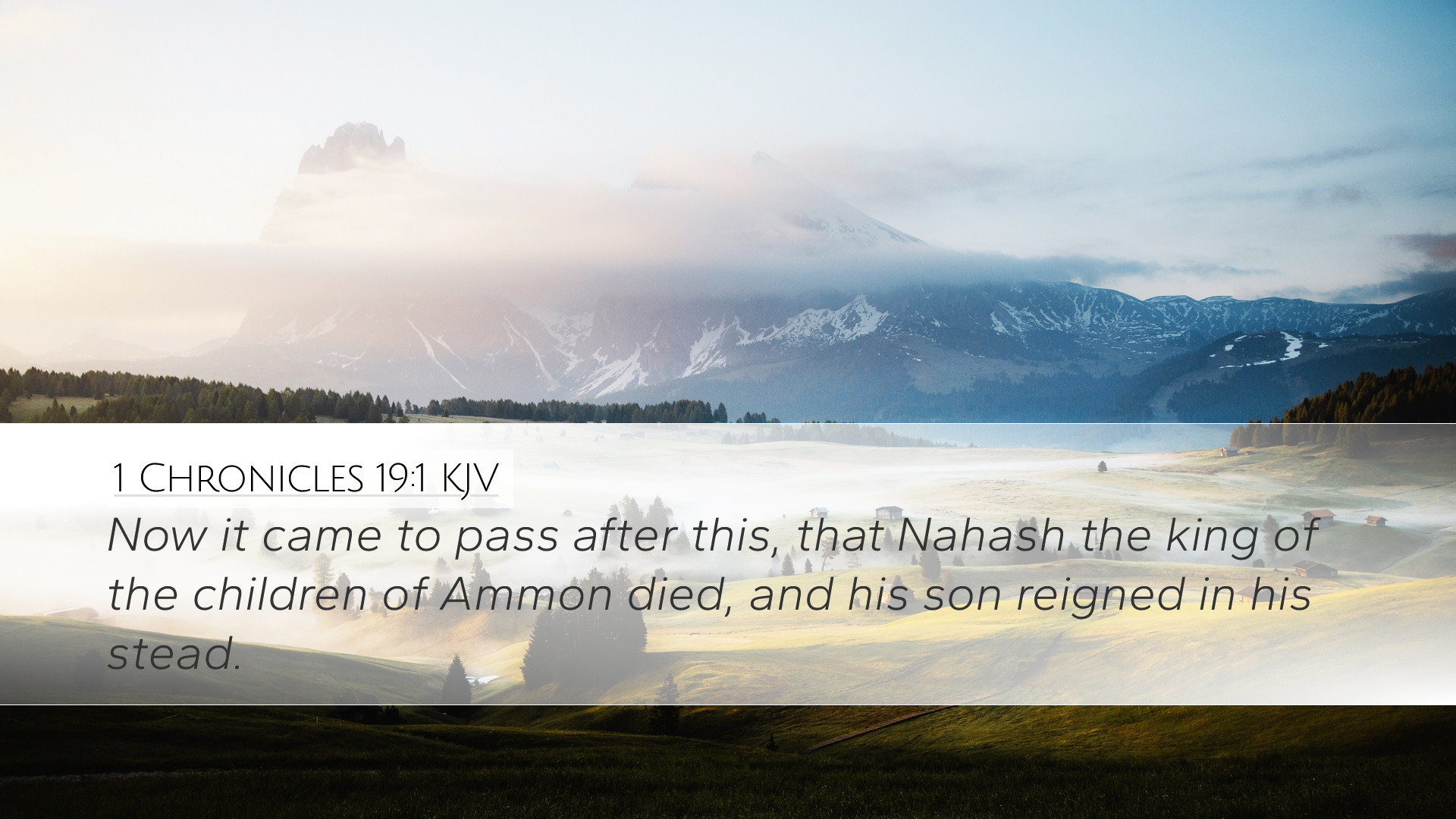Commentary on 1 Chronicles 19:1
Verse: "Now it came to pass after this, that Nahash the king of the children of Ammon died, and his son reigned in his stead." (1 Chronicles 19:1)
Introduction
This verse serves as a pivotal point in the historical narrative of the Israelites and their relationship with surrounding nations, particularly the Ammonites. The death of Nahash represents a significant moment that leads to a series of events affecting Israel during the reign of David.
Contextual Commentary
Historical Background: Nahash, king of Ammon, is often remembered for his antagonistic relationship with Israel, notably for his cruel demand placed upon the inhabitants of Jabesh-gilead, where he threatened to put out their right eyes.
When he died, it marked not only a shift in leadership within Ammon but also presented an opportunity for Israel under David’s kingship to extend influence or even seek relations with the new ruler.
Insights from Matthew Henry
Henry emphasizes the providence of God in allowing the rise and fall of nations. He notes how this transition in Ammonite leadership could potentially lead the new king to either continue the hostility of his father or to seek peace. His commentary details the implications of Nahash's death on David’s plans and relationships with neighboring kings.
- God's Sovereignty: Henry reflects on the divine control over kings and boundaries.
- Diplomatic Opportunities: The new leadership opens avenues for peace talks not only with Israel but also within the region.
Insights from Albert Barnes
Barnes connects this event with the overarching theme of David’s reign and the importance of diplomacy. He focuses on the way the death of a powerful enemy presents opportunities for establishing alliances.
- Importance of Alliances: Barnes notes that David sent messengers to express condolences, indicating a strategic move to foster goodwill and strengthen ties.
- Implications for Israel: The death and succession in Ammon influence the balance of power, shaping the military and political landscape that David must navigate.
Insights from Adam Clarke
Clarke offers a more detailed examination of Nahash's character and past interactions with Israel. He highlights the significance of his demise in the context of Israel's liberation from Ammonite oppression.
- Character of Nahash: Clarke describes Nahash’s actions as representative of the broader conflict between Israel and the surrounding nations.
- Future Relations: He notes that the new king's approach could either lead to renewed hostility or a peaceful accord, stressing the uncertainty in the political landscape.
Theological Reflections
This verse also opens discussions on themes of leadership, succession, and divine providence. It begs the question of how God intervenes in human affairs and the role of nations in His overarching plan.
- Leadership: The transition of power points to God's management of human history through leaders and kingdoms.
- Divine Providence: The events unfolding post-Nahash's death illustrate God's hand in geopolitical affairs for the sake of His people.
- Human Response: David’s decision to reach out signifies the need for proactive leadership in the face of uncertain futures.
Conclusion
The passing of Nahash provides a backdrop against which the dynamics of power, peace, and God’s providence play out. As students, pastors, or scholars reflect on this verse, they should consider the implications of leadership transitions in their ministries and communities.
Ultimately, the lesson lies in recognizing God’s sovereignty in every season of leadership and the essential role diplomacy plays in maintaining peace in the midst of change.


